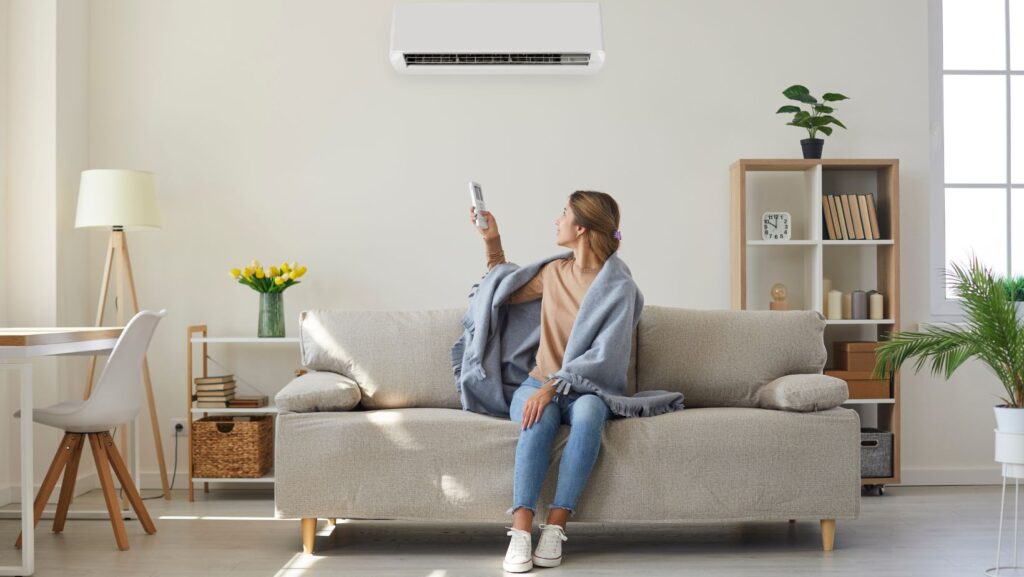Nothing feels more frustrating than cranking up your air conditioner on a sweltering day, only to find your home still feels uncomfortably warm. You can hear the unit humming away, but the relief you’re expecting just isn’t coming. This common scenario leaves many homeowners puzzled and sweating.
The good news? Most causes behind this problem have straightforward solutions. Understanding why your AC might be struggling can help you take the right steps to restore comfort to your home. For residents dealing with extreme desert heat, professional air conditioning and heating services in Needles, AZ can provide expert diagnosis and repair when DIY fixes aren’t enough.
Let’s explore the most common reasons your home stays hot despite a running AC system and what you can do about each one.
Dirty Air Filters Are Blocking Airflow
Your air filter works hard to keep dust, pollen, and debris out of your HVAC system. Over time, these particles build up and create a thick barrier that restricts airflow. When air can’t flow freely through your system, your AC has to work much harder to cool your home and often fails to reach your desired temperature.
Signs your filter needs attention:
- Visible dust and debris on the filter surface
- Reduced airflow from your vents
- Higher energy bills than usual
- Your AC runs constantly without reaching the set temperature
The fix: Replace disposable filters every 1-3 months, or clean reusable filters according to the manufacturer’s instructions. During peak cooling seasons, you should change filters more frequently.
Your Thermostat Settings Need Adjustment
Sometimes, the solution is simpler than you think. Your thermostat might be set to “ON” instead of “AUTO,” causing the fan to run continuously without actually cooling. Or maybe someone accidentally bumped the temperature setting higher than intended.
Check these thermostat basics:
- Verify the temperature setting matches your comfort preference
- Switch from “ON” to “AUTO” so the system cycles properly
- Replace batteries if you have a battery-powered unit
- Consider switching to a programmable thermostat for better temperature control
Refrigerant Levels Are Running Low
Your air conditioner system relies on refrigerant to absorb heat from inside your home and release it outside. Low refrigerant levels—usually caused by leaks in the system—mean your AC can’t effectively remove heat from your living space.
Warning signs of low refrigerant:
- Ice formation on the evaporator coils
- Hissing sounds coming from the unit
- Higher humidity levels inside your home
- Warm air blowing from vents despite the AC running
Important note: Refrigerant issues require professional attention. Don’t attempt to add refrigerant yourself, as this involves specialized equipment and safety considerations.
Dirty Coils Are Reducing Efficiency
Your AC system has two sets of coils—evaporator coils inside your home and condenser coils outside. When these coils get dirty, they can’t transfer heat effectively. The evaporator coils pull warmth from the air inside your house, and the condenser coils get rid of that heat by dispersing it outside. Dirt and debris interfere with this crucial heat exchange process.

Coil maintenance tips:
- Keep the area around your outdoor unit clear of leaves, grass, and debris
- Rinse the outdoor coils gently with a garden hose (avoid high pressure)
- Schedule professional coil cleaning annually
- Check indoor coils during regular maintenance visits
Your Home Has Air Leaks
Even the most efficient AC system struggles when conditioned air escapes through cracks, gaps, and poorly sealed areas. Common culprits include gaps around windows and doors, holes where pipes enter your home, and inadequate insulation in attics or crawl spaces.
Simple ways to improve your home’s seal:
- Apply weatherstripping around doors and windows
- Use caulk to seal gaps around pipes and electrical outlets
- Check and replace damaged door sweeps
- Consider professional energy audits to identify major air leaks
The System Is Too Small For Your Space
If your AC system is undersized for your home, it will run constantly but never achieve comfortable temperatures. This often happens when homeowners replace units without correctly calculating their cooling needs or when they’ve added square footage without upgrading their HVAC system.
Factors affecting proper sizing:
- Total square footage of your home
- Ceiling height and insulation levels
- Number and size of windows
- Local climate conditions
- Heat-generating appliances and electronics
Ductwork Problems Are Wasting Cool Air
Hidden ductwork problems can significantly impact your AC’s performance. Leaky ducts allow conditioned air to seep out into areas like attics or crawl spaces. Blocked or damaged ducts prevent proper air circulation throughout your home.
Signs of ductwork issues:
- Some rooms feel significantly warmer than others
- Visible damage to accessible ductwork
- Unusual noises when the system runs
- Dust accumulation around vents
When To Call For Professional Help
While some AC issues have simple DIY solutions, others require professional expertise. Contact an HVAC technician if you notice refrigerant leaks, electrical problems, or if basic maintenance doesn’t restore proper cooling. Professional technicians have the tools and training to safely diagnose complex issues and perform repairs that restore your system’s efficiency.
Regular maintenance visits can prevent many common problems and help your AC system operate at peak performance throughout the cooling season.
Conclusion
A properly functioning AC system should keep your home comfortable even during the hottest days. By addressing common issues like dirty filters, thermostat problems, and air leaks, you can often restore your system’s cooling power. For more complex issues or when DIY solutions don’t work, professional HVAC services ensure your system gets the expert attention it needs.
Don’t let another day pass feeling uncomfortable in your own home. Take action to identify and resolve what’s preventing your AC from doing its job—your comfort depends on it.
